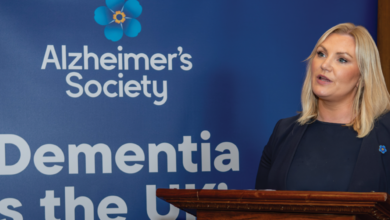Health: In crisis

Stormont’s main political parties have outlined the current health crisis as a priority in the resumption of talks, however, with the system at an unprecedented level of strain, a long-term solution is necessary.
Industrial action by health workers seeking pay parity with their counterparts in the rest of the UK increased the profile of the level of crisis currently ongoing within the health sector in Northern Ireland.
That Northern Ireland’s health current model of care delivery is unsustainable has been long recognised. So much so, that the last Executive delivered a roadmap to transformation. However, that roadmap has largely sat on the shelf in the absence of decision-making, meaning that pressures have continued to grow to the point where the system is now “at the point of collapse”, according to the Royal College of Surgeons.
10,000 outpatient appointments and surgeries cancelled in Belfast alone across a week in early December due to industrial action brought a renewed interest from the general public about the current state of the health system.
However, even in the severity of the situation, officials, in the absence of ministers, found it impossible to find or commit to the necessary funding. The estimated total is said to be a relatively small figure compared to the overall £5 billion health budget.
The Department responded to the demands by stating: “We simply don’t have the money or authority to resolve this impasse, and we strongly believe that patients should not be the ones to suffer because of that.”
A renewed pay offer by the Department was rejected, leading Permanent Secretary Richard Pengelly to say: “We have made a sizeable new offer. In the absence of ministers, this is the furthest I am able to go. It is therefore the final offer for this year.”
However, pay is far from the only challenge facing the service. More than 300,000 people are waiting for a first appointment with a consultant according to statistics from the Department of Health, an 8 per cent rise from the previous year. It’s estimated that one in five cancer patients are receiving their diagnosis in an emergency department. At the same time there is severe skills shortages across the board in health and social care.
Evolving patient needs are outpacing the ability to provide care. For example, Northern Ireland faces a shortage of doctors, particularly in the area of general practice. As such, there is an overreliance on locum doctors amongst Northern Ireland’s health trusts. A report by Northern Ireland’s Comptroller and Auditor General found that expenditure on locum doctors had increased by some 190 per cent in the past seven years.
Challenges are not just evident in primary care but also in secondary care. There is up to 7.5 per cent of unfilled vacancies across the social care sector. Staff and financial pressures are not only placing additional pressure on primary care but also on the health outcomes for patients across Northern Ireland.
Additionally, public confidence in the health sector has been damaged of late following a series of failures around the likes of the neurology patient recall and the treatment of vulnerable patients at Muckamore Abbey Hospital.
At the heart of Northern Ireland’s health crisis is a lack of funding and the creation of mechanisms necessary to ensure that available monies are being spent in the right manner to enhance outcomes for patients. The cost of healthcare in Northern Ireland to deliver the same services rises around 6 per cent annually. If continued for 20 years, the health budget alone would require all of the money allocated to Stormont’s departments.
Transformation of the health service is necessary but, to date, there has been little effort to implement the reforms set out over three years ago. Of what transformation has taken place, the roll out of multi-disciplinary teams in a small number of GP federations in Northern Ireland, for example, much of the funding was external. The confidence and supply deal held by the DUP with Westminster brought about some additional resource but will no longer be a funding option.
306,180 patients were waiting for a first consultant-led outpatient appointment. Up 8 per cent from 2018 (30 September 2019)
87,353 patients waiting to be admitted to hospitals in Northern Ireland. Up 1.3 per cent from 2018
(30 September 2019)
Instead a restored Stormont must act to enact change. However, change will also come at a cost and it is hoped that a possible restoration of Stormont will also come with an investment package form Westminster’s new government.
The BMA’s Tom Black recently outlined three priority areas for a future Northern Ireland Government. An initial step will be securing a resolution in the pay deal. Secondly, an incoming minister must prioritise investment in reducing the current waiting lists. Without transformative measures, it’s estimated that close to £1 billion would need to be found to address the waiting list crisis. Finally, medium-term transformation opportunities must be enacted to ensure maximum efficiency in expenditure on the delivery of care.
Not free from criticism has been the UK Government. Secretary of State Julian Smith has held off on stepping in and taking a decision that would see the Department of Health committed to extra financial expenditure on pay for the foreseeable future. Smith has emphasised that health, a devolved matter from Westminster, is a matter for a Stormont Executive to resolve. To this end he has been accused of using the impending crisis as a bargaining chip to incentivise political parties.





